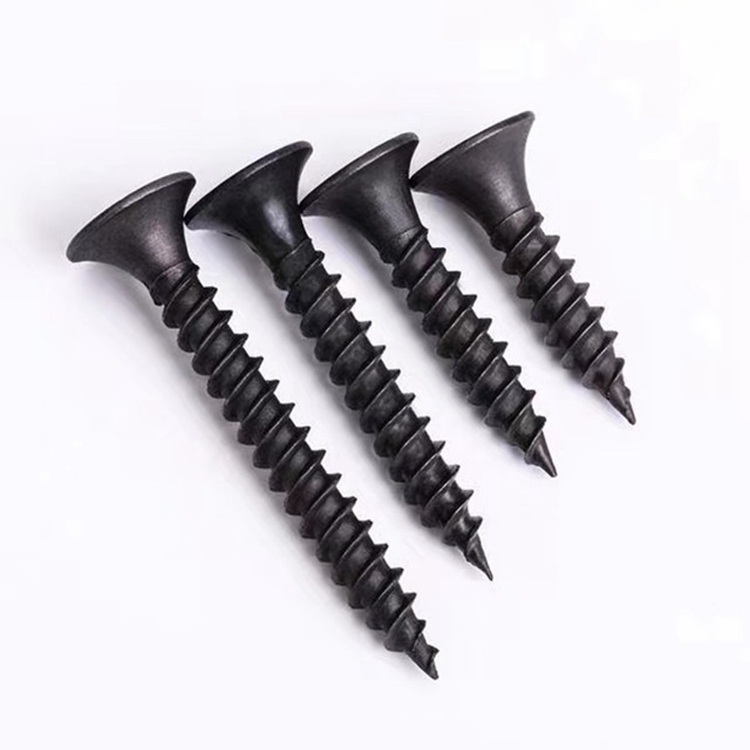double ended threaded stud bolt m6 exporters
Nov . 25, 2024 11:20 Back to list
double ended threaded stud bolt m6 exporters
Exploring Double Ended Threaded Stud Bolt M6 Exporters
In the world of industrial fastening solutions, the double-ended threaded stud bolt holds a crucial position. Particularly in the M6 category, these fasteners are essential for a broad range of applications across various sectors, including automotive, construction, and machinery. With the increasing demand for high-quality fasteners, the role of exporters specializing in M6 double-ended threaded stud bolts has become more prominent than ever.
Understanding Double Ended Threaded Stud Bolts
Double-ended threaded stud bolts are characterized by their threaded ends on both sides and a smooth center. They are versatile components that can be used in numerous assemblies where a secure connection is vital. The M6 specification indicates a nominal diameter of 6 millimeters, making it suitable for applications requiring moderate strength and durability.
Due to their design, these bolts can be easily installed in situations where the access point is limited. They are commonly used in conjunction with nuts on each end, providing flexibility and securing parts together in a myriad of configurations. Their ability to handle shear forces makes them indispensable in load-bearing applications.
The Global Market for M6 Double Ended Threaded Stud Bolts
As the industrial sector sees expansive growth, so does the market for fasteners. M6 double-ended threaded stud bolts are manufactured by numerous exporters around the globe, catering to various needs and standards. These exporters play a critical role in ensuring that industries have access to reliable and high-performing fasteners.
Countries with strong manufacturing bases, such as China, Germany, and the United States, are some of the leading exporters of M6 double-ended threaded stud bolts. These exporters often comply with international standards such as ISO, ASTM, and DIN, ensuring that the bolts they provide meet the stringent requirements of global markets.
Key Factors to Consider When Choosing Exporters
When selecting exporters for M6 double-ended threaded stud bolts, there are several factors to consider
double ended threaded stud bolt m6 exporters

1. Quality Assurance Ensure that the exporter has a robust quality control process in place. This can include testing for tensile strength, corrosion resistance, and dimensional accuracy.
2. Certifications Look for exporters that possess relevant certifications. ISO 9001 certification, for instance, indicates a commitment to quality management systems, which is vital in the manufacturing of fasteners.
3. Product Range A good exporter should offer a variety of M6 double-ended threaded stud bolts, including different materials (such as stainless steel, carbon steel, or alloy steel) and surface treatments (like galvanization or nickel plating).
4. Customer Service Responsive and knowledgeable customer service is crucial. Exporters should be able to provide support regarding product specifications, pricing, and delivery timelines.
5. Logistics and Delivery Timely delivery is essential in maintaining production schedules. Assess the logistics capabilities of the exporter, including their shipping options and lead times.
6. Price Competitiveness While price shouldn't be the only consideration, it is important to find a balance between cost and quality. Compare quotes from multiple exporters to get a sense of the market rate.
Future Trends in the M6 Double Ended Threaded Stud Bolt Market
With the rise of smart manufacturing and automation, the demand for precision fasteners like M6 double-ended threaded stud bolts is expected to grow. Industry players are increasingly looking for reliable suppliers who can provide high-quality products that meet modern engineering demands.
Moreover, the push for sustainability in manufacturing processes is likely to influence the types of materials used in fasteners. Exporters who can adapt to these trends by offering eco-friendly options will have a competitive edge.
In conclusion, the role of M6 double-ended threaded stud bolt exporters is vital in the industrial landscape. As requirements evolve, these exporters must continue to innovate and uphold quality to meet the changing demands of industries worldwide. By carefully selecting exporters based on quality, service, and adaptability, businesses can ensure they have the best fastening solutions for their applications.
Latest news
-
High-Quality Panel Stud Bolt Reliable Panel Stud Bolt Factory & Suppliers
NewsJul.08,2025
-
High-Precision Fine Thread Locknuts Manufacturer & Supplier Custom Solutions
NewsJul.08,2025
-
PH Imperial Stud Bolt – High Strength Fasteners from Leading Supplier & Factory
NewsJul.07,2025
-
High-Quality Allen Wrench Bolts Leading Factory, Company & Suppliers
NewsJul.07,2025
-
Wholesale Ball Stud Bolt - High Quality Supplier & Factory Price Reliable Wholesale Ball Stud Bolt Company
NewsJul.06,2025
-
High-Strength Alloy Bolts Manufacturer & Supplier Quality Alloy Fasteners Factory
NewsJul.06,2025
